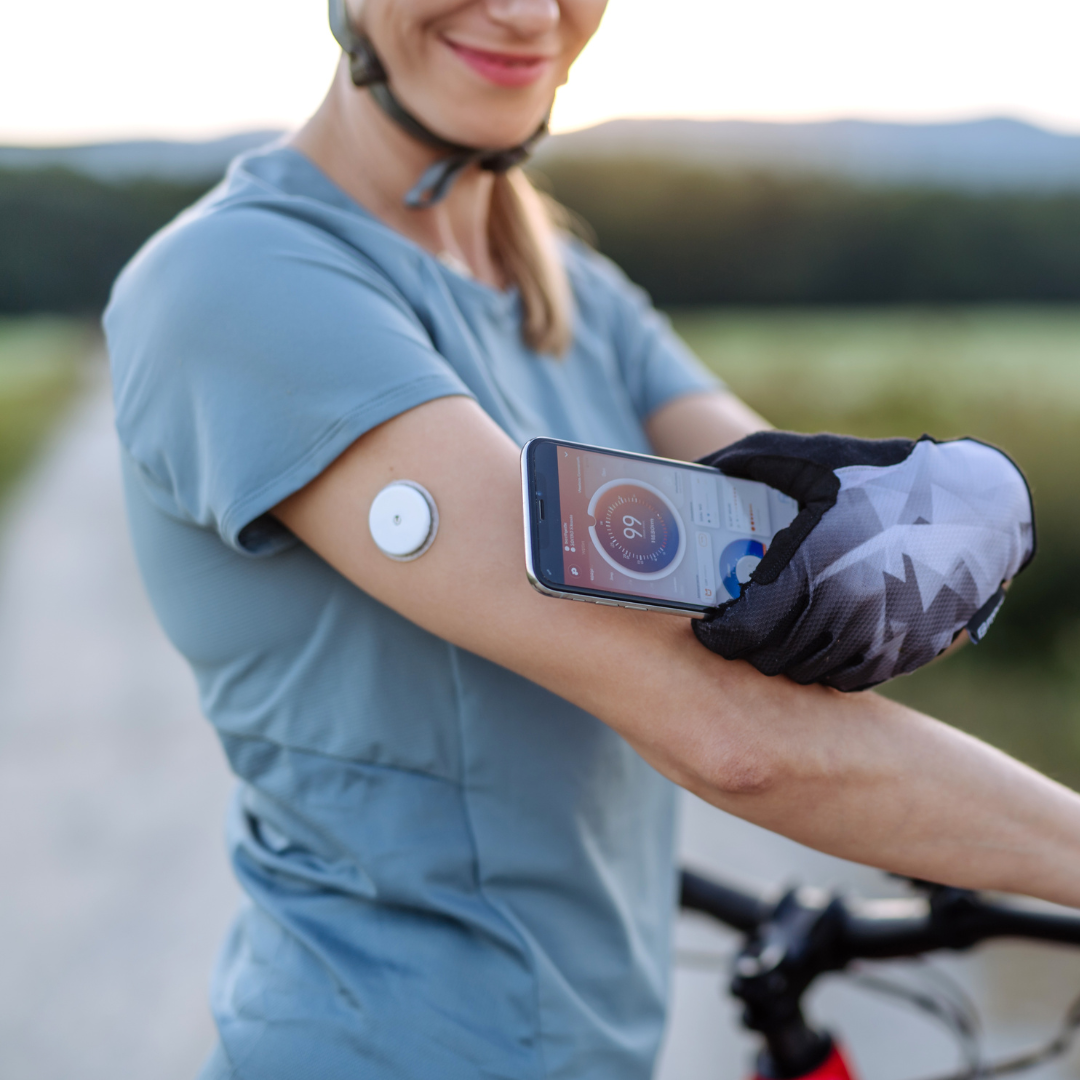Managing Gestational Diabetes

Management of gestational diabetes got a little easier when the FDA approved the Dexcom G7 to be worn during pregnancy to treat all types of diabetes (Type 1, Type 2, and gestational). This approval brings the latest in Continuous Glucose Monitoring (CGM) technology to those with gestational diabetes. For those in the diabetes community, this new indication gives us a reason to celebrate! It will hopefully open doors – making it easier for those with gestational diabetes to acquire the Dexcom G7 during pregnancy.
In this post, I am going to discuss gestational diabetes, Continuous Glucose Monitoring with the Dexcom G7, and Reducing the Risks for Type 2 Diabetes after pregnancy.
A quick reminder
Gestational diabetes, or Gestational Diabetes Mellitus (GDM), is a type of diabetes that develops during pregnancy. The body goes through so many changes during pregnancy – increased hormone levels being one. These increased levels affect how the body uses insulin, the hormone that helps regulate glucose and allows it to enter cells for energy. For those with GDM, they have less efficient use of insulin. So, the body needs to make more insulin. When the body cannot produce enough insulin to meet the increased hormonal demands of pregnancy, we get high blood glucose levels.
Gestational diabetes typically develops around the 24th to 28th week of pregnancy and usually reduces after childbirth. It is essential to manage gestational diabetes effectively because it can have adverse effects on both the mother and the baby.
Risk factors for gestational diabetes include:
- Age: Women over the age of 25 are at a higher risk.
- Obesity: Being overweight or obese increases the risk.
- Family History: A family history of diabetes increases the likelihood.
- Ethnicity: Some ethnic groups have a higher risk, such as African American, Hispanic, Native American, or Asian.
- Previous Gestational Diabetes: If you have had gestational diabetes during a previous pregnancy, you’re more likely to develop it again.
- Polycystic Ovary Syndrome (PCOS): Women with PCOS are at an increased risk.
- High Blood Pressure: High blood pressure before or during pregnancy can increase the risk.
- Previous Large Baby: For moms who have previously delivered a baby who weighed nine pounds or more, there is a higher risk.
Managing gestational diabetes involves making lifestyle changes, including:
- Healthy Eating: Maintain a balanced diet that controls carbohydrate intake and focuses on whole foods.
- Regular Physical Activity: Engage in safe and appropriate exercises your healthcare provider recommends.
- Monitoring Glucose Levels: Regularly monitor glucose levels to ensure they are within target ranges. Time in Range (TIR) is critical; this is how the Dexcom G7 can play an essential role in GDM management.
- Insulin or Medication: If required, adhere to the prescribed schedule of insulin injections or oral medications to manage glucose levels.
- Frequent Medical Check-ups: Engage in regular prenatal visits to monitor the health of both the mother and the baby.
Unmanaged gestational diabetes can lead to complications for the mom, such as preeclampsia, premature birth, excessive birth weight (macrosomia), and, for the baby, developing low glucose or hypoglycemia after delivery.

The Dexcom G7 provides real-time information about glucose levels, trends, and fluctuations, which can be particularly valuable during pregnancy. Here are some of the benefits of using the Dexcom G7 during pregnancy:
Improved Glucose Management Control
The Dexcom G7 provides continuous and frequent glucose readings throughout the day and night, allowing for more precise tracking of glucose levels helping women make immediate adjustments to their diet, exercise, and insulin regimen to maintain target ranges.
Early Detection of Highs and Lows
The Dexcom G7 alerts users to high and low glucose levels, reducing the risk of hyperglycemia (high glucose) and hypoglycemia (low glucose) episodes. Detecting and addressing these fluctuations promptly is crucial for both the mother’s and baby’s health.
Reduced Risk of Complications
Maintaining optimal glucose control during pregnancy can help reduce the risk of complications such as congenital disabilities, preeclampsia, preterm birth, and macrosomia (large baby). CGM can aid in avoiding prolonged periods of high glucose that may contribute to these complications.
Personalized Management
The Dexcom G7 data allows for customized diabetes management. Healthcare providers can analyze trends and patterns in glucose levels, enabling them to make informed adjustments to insulin doses and treatment plans based on the individual’s needs.
Fewer Fingersticks
The Dexcom G7 replaces fingersticks, providing a more convenient and less intrusive way to monitor glucose levels. This can be especially helpful during pregnancy, when monitoring needs are heightened.
Peace of Mind
Pregnant women with diabetes often experience anxiety about their glucose levels affecting their baby’s health. The Dexcom G7 provides real-time information and alerts, offering peace of mind and helping to alleviate some of these worries.
Data for Healthcare Providers
The Dexcom G7 provides detailed data that can aid healthcare providers in making informed decisions about insulin doses, diet modifications, and overall diabetes management. This data can facilitate more productive conversations during prenatal appointments.
Education and Empowerment
CGM encourages active involvement in diabetes management by empowering individuals to understand how their actions and choices impact their glucose levels. This education is valuable during pregnancy and beyond.
It is important to note that while the Dexcom G7 offers numerous benefits, it should be used in conjunction with medical advice and under the guidance of a healthcare provider. Pregnant women with diabetes should work closely with their healthcare team to optimize glucose control and ensure the best possible outcomes for both the mother and the baby.
This site is for educational purposes only. Talk to your doctor or healthcare provider before making any decisions about your health.



